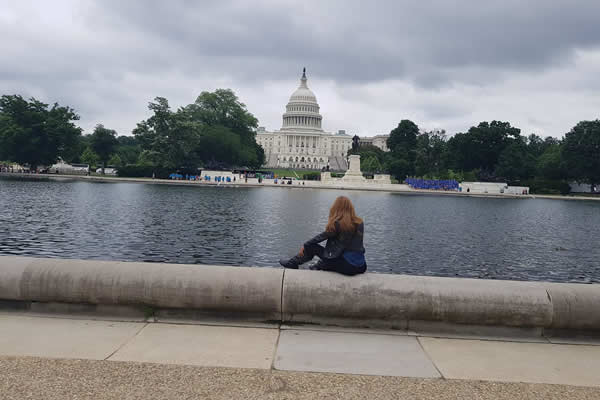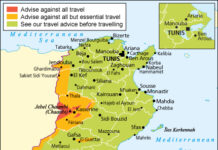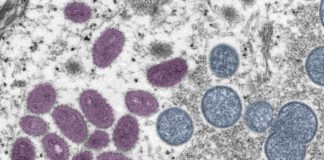GUATEMALA CITY — A gay Guatemalan congressman who is a vocal critic of his country’s president and corruption says he is afraid for his life.
“I am scared of what may happen with so much persecution against me,” Aldo Dávila told the Washington Blade on Sept. 10 during an interview at a Guatemala City hotel. “I am scared for my life, for my partner, for my family and for my team.”
Dávila — a member of the Winaq movement, a leftist party founded by Rigoberta Menchú, an indigenous human rights activist and Nobel Peace Prize winner — in 2019 became the first openly gay man elected to Guatemala’s congress. Dávila, who also lives with HIV, had previously been the executive director of Asociación Gente Positiva, a Guatemala City-based HIV/AIDS service organization.
Three men on April 19 approached his vehicle while it was stopped at a traffic light near Guatemala’s National Library and tried to rob him.
One of Dávila’s bodyguards who was driving shot one of the men. The other two men fled the scene before passersby and police officers arrived.
Dávila was not injured, but he later said in a Facebook post that he is “thankful for life.” Dávila told the Blade that Guatemalan authorities have not thoroughly investigated the attack.
“I requested an armored car after the attack, but I have not received it yet,” said Dávila, who arrived at the hotel with two female police officers who sat in the lobby while he spoke with the Blade. “This has not been resolved, even though it was in April. It is very complicated.”
Dávila said Culture Minister Felipe Aguilar, Congress President Allan Rodríguez and other supporters of President Alejandro Giammattei have lodged nine formal complaints against him after he publicly criticized the government over a variety of issues that include its response to the pandemic.
“It has been a systematic attack against me,” said Dávila.
Dávila told the Blade that he and his partner installed cameras in their apartment after someone killed their dog. Dávila also said he continues to receive death threats online and at his home.
“We are going to kill you, we are going to shut you up,” said Dávila, referring to the type of threats he says he receives.
“They send me little messages, I am clearly making those who are corrupt very uncomfortable,” added Dávila.
Prominent transgender activist murdered in June
Discrimination and violence based on sexual orientation and gender identity remains commonplace in Guatemala.
Dávila told the Blade that 21 LGBTQ people have been reported killed in Guatemala so far in 2021, including one person who was stoned to death.
Andrea González, executive director of Organización Trans Reinas de la Noche, a trans advocacy group, was shot to death in Guatemala City on June 11, days after Vice President Kamala Harris visited the country. The U.S. Embassy in Guatemala and U.S. Agency for International Development Administrator Samantha Power both condemned González’s murder, but Dávila told the Blade there has been “no investigation.”
“It’s one more case about which to forget, unfortunately,” said Dávila.
Dávila also noted he has met with officials who include representatives of the National Civil Police, the Public Ministry and the National Institute for Forensic Sciences “to ask what they are doing” to combat anti-LGBTQ violence in the country.
“This is serious,” he said.
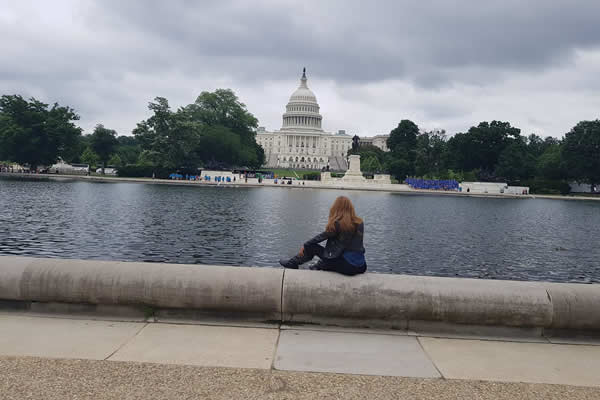
‘People don’t migrate because they want to’
Menchú, Visibles Executive Director Daniel Villatoro and Ingrid Gamboa of the Association of Garifuna Women Living with HIV/AIDS are among the 18 members of Guatemalan civil society who participated in the roundtable with Harris while she was in the country. The U.S. vice president met with Giammattei before the event.
Harris has previously acknowledged that violence based on sexual orientation and gender identity is among the “root causes” of migration from Guatemala and other Central American countries. Harris and other Biden administration officials have also told migrants not to travel to the U.S.-Mexico border.
“People migrate because states don’t have the capacity to respond to the most basic needs,” said Dávila. “People don’t migrate because they want to. People don’t migrate because (they say) today I am going to go to the United States because I have nothing to do. They don’t go on vacation. They go in search of health, work, security and economic resources to be able to sustain themselves.”
“Guatemala has not had the capacity to retain Guatemalans because it doesn’t offer them the minimum to be able to live,” he added.
Dávila described Harris’ visit to Guatemala as “important.”
He said Guatemalans are “eternally grateful for the” COVID-19 vaccines the U.S. has donated to the country. Dávila added he would like Washington to “take a look at the human rights violations that are happening in” the country and further sanction those who are responsible for them.
Giammattei earlier this year named his chief of staff to Guatemala’s Constitutional Court.
The U.S. has granted asylum to former Attorney General Thelma Aldana, who the Constitutional Court refused to allow to run for president in 2019 after prosecutors alleged she embezzled money from a building purchase. The Biden administration in July stopped working with current Attorney General Consuelo Porras’ office after it fired Juan Francisco Sandoval, a leading anti-corruption prosecutor who subsequently fled the country.
The U.S. has imposed travel bans on a number of Guatemalan officials, but Dávila said these sanctions are not effective.
“We want clearer, more drastic sanctions,” he said. “The U.S. has been a historical ally for Guatemala, not just since yesterday, not from five years ago … it has been economically and financially supporting this country for a long time. The United States can impose more drastic sanctions against the government so the government stops being corrupt, so the government does not fight against migration.”
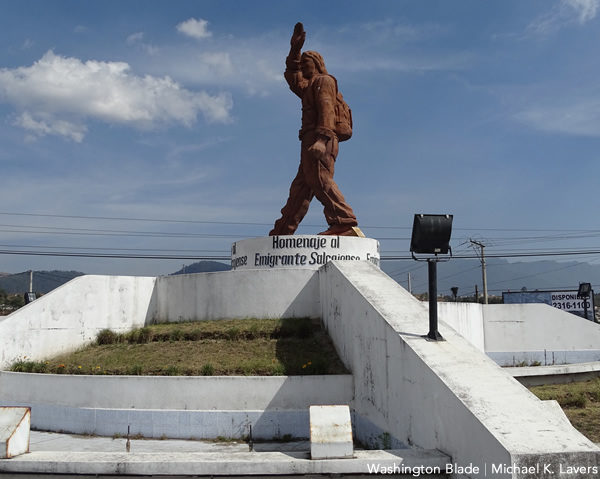
Dávila told the Blade he has not decided whether he will run for a second term in 2023.
Dávila said he has had “some problems” with the Winaq movement over funding for hospitals during the pandemic, but he remains a member. Dávila told the Blade he has received invitations to join other political parties.
“I am thinking about it and evaluating all the scenarios,” he said.
Dávila added he remains “very proud to be part of the opposition in the history of this country.”

